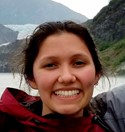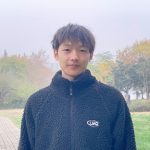Katelyn H McKown: The Plant Cell First Author

 Katelyn H McKown, first author of “Expanded roles and divergent regulation of FAMA in Brachypodium and Arabidopsis stomatal development”
Katelyn H McKown, first author of “Expanded roles and divergent regulation of FAMA in Brachypodium and Arabidopsis stomatal development”
Current Position: Lecturer in the Civic, Liberal, and Global Education program at Stanford University
Education: B.S. with honors in Biology (Stanford University), PhD Genetics (Stanford School of Medicine)
Non-scientific Interests: Gardening, drawing, fishing, hiking
Brief bio: I have always been fascinated by nature and am passionate about using science as a lens with which to explore the world in which we live. I grew plants and gardened as a hobby, but it wasn’t until I began my PhD research in the Bergmann Lab at Stanford that I realized how far-reaching the impacts of plant research have on every aspect of our lives. Because of their role in water use efficiency and photosynthesis, stomata are particularly important to study, as the research can have important downstream agricultural implications, particularly for drought tolerance. Stomata are essential structures in all land plants, and their morphology, regulation, and development have evolved in tandem with their respective plants to maximize fitness. As such, they present a unique model with which to interrogate how the molecular and genetic underpinnings of stomatal development have been modified to produce the diversity of stomatal forms. My research utilized the temperate grass model, Brachypodium distachyon, and has focused on characterizing members of a well-conserved transcription factor family involved in stomatal differentiation using genetic approaches to understand how grasses’ unique stomata are formed, including the creation of cross-species rescues to test for functional conservation across monocots and dicots.
As an Indigenous scientist, I am also passionate about storytelling and science communication, teaching, and diversity, equity, and inclusion (DEI) efforts. In the past, I have engaged with this by mentoring Indigenous students, tutoring, and teaching writing and science communication, and leading outreach activities through programs like Stanford’s Splash courses, Taste of Science, and Nightlife at the California Academy of Sciences. In these events, I worked to craft hands-on educational activities that would get people interested in the secret world of plants and enable them look at nature with a new sense of excitement and discovery. I am now a Lecturer for Stanford’s Civic, Liberal, and Global Education program, where I am working to create an educational environment for my students that will foster inclusivity in higher education for all.



